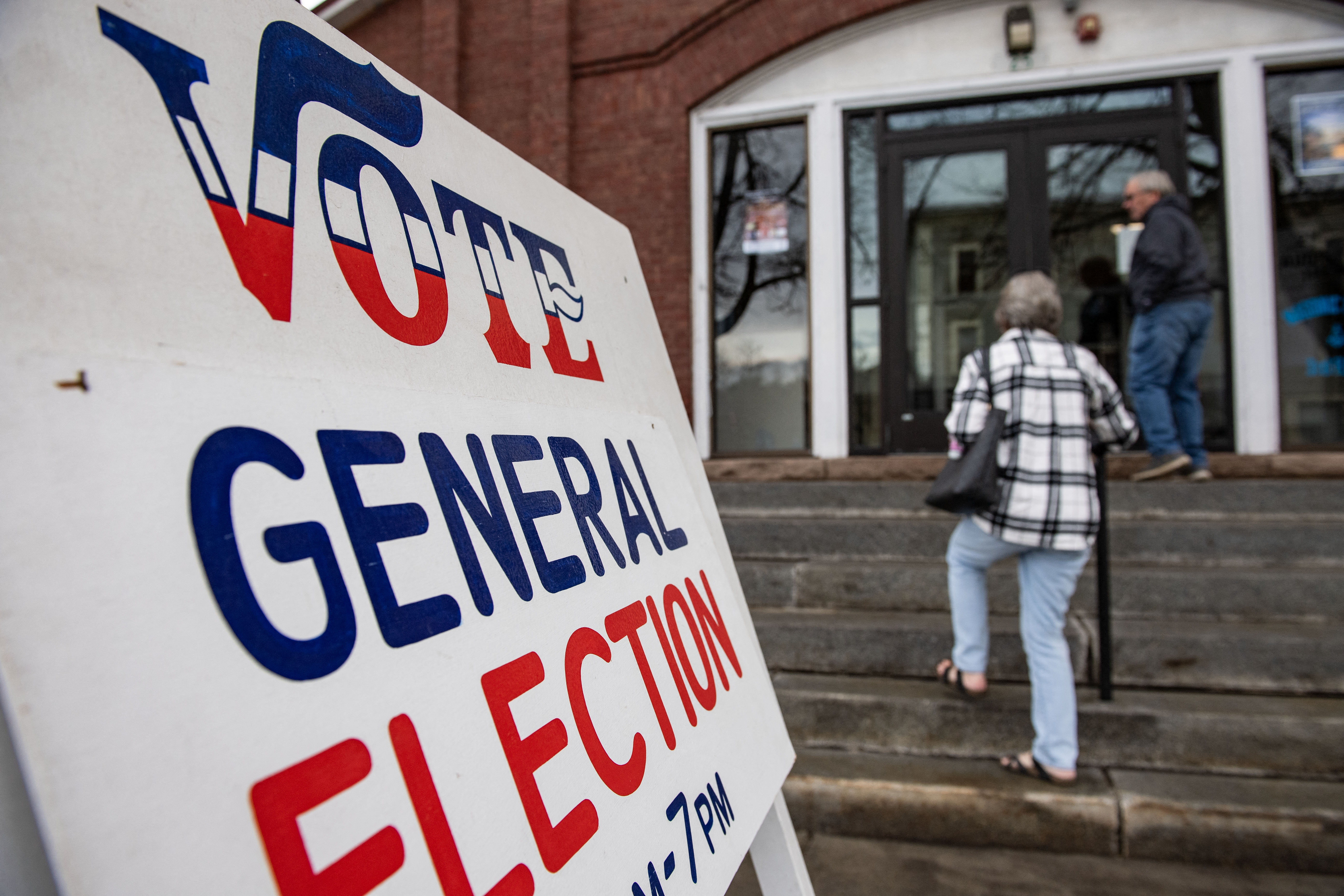Massachusetts voters rejected a measure to legalize some psychedelics, but said yes to dropping comprehensive tests as a requirement for getting a high school diploma. The issues were among five measures put to voters on Tuesday’s ballot.
Voters also said yes to auditing the Legislature, yes to giving union rights to drivers for ride-hailing companies like Uber and Lyft, and no to increasing the minimum hourly wage for workers who collect tips.
WATCH ANYTIME FOR FREE
>Stream NBC10 Boston news for free, 24/7, wherever you are. |
Here's a closer look at the results for the 2024 Massachusetts ballot questions
Get updates on what's happening in Boston to your inbox. Sign up for our >News Headlines newsletter.
APPROVED: Mass. Ballot Question 1 — Allow audit of the state Legislature
Voters gave the state auditor the power to audit the Legislature.
The ballot measure had been spearheaded by state Auditor Diana DiZoglio, who formerly served in both the state House and Senate. She said the passage of the measure is a victory for those who want a more open state government.
“The people of Massachusetts want the equity, transparency and accountability that a legislative audit would bring,” she said.
Critics had said the question would violate the separation of powers outlined in the Massachusetts Constitution.
Democratic Senate President Karen Spilka and House Speaker Ronald Mariano released a statement saying they will consider “how to best respect the Question 1 election results in a manner that aligns with the fundamental principles of the Massachusetts Constitution, including separation of powers.”
APPROVED: Mass. Ballot Question 2 — Drop MCAS as a graduation requirement
Until now, Massachusetts students were required to pass comprehensive tests to receive a high school diploma. The ballot issue doesn't get rid of the tests, but stipulates that passing them will no longer be required for graduation.
The Massachusetts Comprehensive Assessment System tests are given in mathematics, science and technology, and English.
Instead of passing the tests, students will be required to finish coursework certified by the local school district and achieve state academic standards in the subjects.
Teachers unions have been among the strongest critics of using the tests as a graduation requirement, saying that “teaching to the test” limits their ability to give students a fuller education.
Supporters of the tests argued that without the requirement, school districts will adopt lower standards so students can graduate. They said it’s unfair to grant diplomas to students who aren’t ready.
APPROVED: Mass. Ballot Question 3 — Allow Uber, Lyft drivers to unionize
Drivers for ride-hailing companies like Uber and Lyft will be allowed to unionize in the state.
Under the proposal approved by voters, drivers won't be required to participate. Individual companies can team up to form associations to represent their interests in negotiations. As part of the measure, the state will have the right to approve negotiated contracts.
The proposal will also create a hearing process when a company or union is charged with an unfair work practice.
Unions pushed for the change despite a settlement announced in June by the state attorney general’s office guaranteeing Uber and Lyft drivers earn a minimum pay standard of $32.50 per hour.
Opponents said the measure will raise prices for riders without directly benefitting drivers. Critics also argued that the question would create what they call “a new radical labor category” that is inconsistent with federal labor laws and say the drivers already enjoy benefits including the higher hourly rate and paid sick and family medical leave.
DEFEATED: Mass. Ballot Question 4 — legalize psychedelic substances
The ballot issue would have allowed residents 21 and older to grow and use plant-based psychedelics in certain circumstances. Two other states have legalized some mind-altering drugs that are considered illegal by the federal government.
The psychedelics in question included psilocybin and psilocyn, both found in so-called “magic mushrooms;” and mescaline, dimethyltryptamine and ibogaine from plants.
Critics of the proposal warned it could lead to a black market. They also argued the centers selling the drugs would not be prevented from giving psychedelics to people considered high risk, like those with schizophrenia, bipolar illness or who are pregnant or breastfeeding.
DEFEATED: Mass. Ballot Question 5 — raise minimum wage for tipped workers
The state’s wage for tipped workers is now $6.75 an hour, while the minimum hourly wage for most other workers is $15.
Now, if a worker doesn’t earn enough in tips to bring them up to $15 an hour, the employer must make up the difference.
Under the proposal, employers would have been required to pay tipped workers $9.60 on Jan. 1, and match the state’s full minimum wage at the start of 2029.
Supporters argued tips should be a reward for good service, not a subsidy for low wages. Critics said the proposal would have reduced overall wages for servers, increase costs for restaurants and patrons and could force some neighborhood eateries to close.
Explore all the top election results around Massachusetts and the country here.



